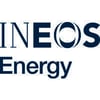Apply for a FREE profile. Unlock your behavioural sight and improve your impact.
Cultural Fit Assessment for Teams
The term "cultural fit" relates to how well a given candidate will integrate into a company or institution's existing culture. The cultural fit assessment for teams takes that notion and extends it to your existing teams to determine whether there are any cultural mismatches that may be negatively affecting group harmony and productivity.
The importance of a good cultural fit can not be overstated. It benefits both employer and employee by fostering trust between team members and ensuring your teams are dedicated to realising company goals. A good cultural fit will bolster the company or institution's core values, promote desirable behaviour and enable teams to stay focused on both short and long-term goals to everyone's benefit.
- ✅ Improve team-wide performance by 32%
- ✅ Reduce employee churn by 20%
- ✅ 53% increase in effectiveness of internaland external communications

Loved by effective companies of all sizes





Why Employees Should Welcome the Cultural Fit Assessment for Teams
No one wants to work in a place where they feel like a fish out of water. But it can happen when hiring managers are more focused on an impressive CV than they are on whether or not a candidate shares the company's values. For those thrust into difficult situations through no fault of their own a cultural fit assessment can reveal why they do not seem to be meshing with their co-workers and perhaps also provide insight that could help rectify the situation.

Why people love C-me

“Training materials and support supplied by the c-me team has allowed us to deliver the c-me principles in a simple, fun and memorable way.”


“C-me has given us valuable insight into potential group dynamics as well as a starting point to construct meaningful questions”

“C-me is an enabler to support everyone at LMG to be more aware, involve the right people and to create a solution approach.”


“C-me has helped enable our teams in understanding and appreciating difference.”


“It helped us appreciate each other’s communication preferences better, and understand and avoid previous areas of misunderstanding.”

“Participants on the course state that they are more measured in their responses and have a greater understanding of peoples behaviour.”


“C-me has coloured our working world and improved our working relationships.”


“C-me has been a critical tool to enhance our new performance review process.”


“The great strength of C-me is its accuracy and its simplicity to use.”
About C-me
Businesses and institutions have been conducting assessments of candidates and employees for decades. The team that founded C-me were part of that movement. What they discovered, however, was that standard personality-based assessment tools had a self-limiting aspect about them that prevented deeper insights into individual tendencies.
They set out to address this shortcoming and after much work they unveiled C-me. The C-me colour profiling system eschews personality-based assessments in favour of behaviour-based assessments which provide a much richer and more nuanced picture of what drives people to act the way they do.
Those instincts and traits are then reduced to a set of colour codes with each colour indicating a different trait, instinct or tendency. Team leaders and other team members then study these colour profiles, thereby gaining useful insights into what makes their co-workers tick.

Learn More About Our Cultural Fit Assessment for Teams
The C-me cultural fit assessment for teams can transform your workplace into a dynamic, high performance environment where friction is greatly reduced freeing everyone to be their productive best. To learn more fill out our Contact Form or call us on +44 (0)1225 721971.

What our clients say about us

C-me has been a really useful tool; using them to not only develop our own self-awareness, but also learn how to communicate better as a team has been really invaluable.


The impact C-me profiles have on teams and the organisation as a whole has been fascinating and refreshing. Individuals have shown more empathy, inclusivity and understanding of their colleagues, creating a happier and more productive culture. I would feel confident in recommending C-me as it creates a shared language for discussing behaviour and difference.


WDC, Whale and Dolphin Conservation began using C-me as a tool for improving communication across our international senior leadership team. It helped us appreciate each other’s communication preferences better, and understand and avoid previous areas of misunderstanding. We have now started to roll C-me out across the UK organisation, putting it into our Onboarding process to help teams communication effectively and appreciate each other’s contribution.


While difficult to quantify in %'s, I notice a greater awareness of why conflict can happen and what team members might need to work effectively once employees understand the colour preferences. Participants on the course state that they are more measured in their responses and have a greater understanding of peoples behaviour.


We pride ourselves on collaborating across departments, and C-Me allows us to enhance that process through a shared understanding of each other's working preferences...

Cultural Fit Assessment for Teams FAQs
What Exactly Is a Cultural Fit Assessment?
A cultural fit assessment for teams measures how well individual team members align with each other and with the values, norms, and working behaviours of the organisation. It goes beyond technical skills to look at how people behave, communicate, make decisions, and respond under pressure. The goal is to highlight mismatches that may be affecting team effectiveness, collaboration, or morale.
How Does C-me’s Approach Differ From Typical Behavioural Tests?
Many behavioural tests focus on static traits or how people describe themselves. C-me’s approach emphasises behavioural drivers and tendencies. The results are translated into colour-based profiles, which reflect likely behaviours in different contexts such as team collaboration, stress, or leadership. Because it centres on observable behaviour rather than abstract traits, the insights are more practical and can be applied immediately in everyday teamwork.
Who Should Use It and When?
Cultural fit assessments are valuable in many situations, including:
- Newly formed or recently restructured teams
- Mergers or acquisitions where cultures need aligning
- Leadership transitions or changes in management
- Organisations seeking to improve engagement and reduce turnover
- Teams experiencing friction, misunderstandings, or lack of cohesion
It is not designed to replace performance reviews or hiring processes but to complement them by improving awareness and communication.
What Kind of Outcomes Can Be Expected?
Typical outcomes include:
Improved communication across teams and departments- Greater awareness of personal working preferences and those of colleagues
- Reduced conflict caused by misunderstandings
- Stronger collaboration and inclusion, with members recognising the value of different styles
The result is usually a team that feels more connected and aligned to organisational goals.
How Is the Assessment Delivered?
The process is straightforward:
- Team members complete an online profile questionnaire to capture behavioural preferences.
- The responses are analysed and combined into a team profile, showing alignments and differences.
- The findings are shared in reports or workshops, giving both individuals and leaders clear insights.
- Practical follow-up actions are recommended, such as adjusting communication styles, refining team norms, or reallocating responsibilities.
Facilitated sessions and coaching can be provided to help embed these insights into day-to-day work.
How Long Does It Take, and What Support Is Provided?
For a mid-sized team, questionnaires can be completed in under an hour. Reports are usually available within a couple of days, followed by workshops or feedback sessions. Additional training and coaching support can be offered to help teams act on the insights and sustain long-term improvements.
Are There Any Risks or Limitations?
Like all tools, cultural fit assessments should be used carefully. If communicated poorly, results can make people feel labelled rather than understood. The tool should be positioned as a framework for improvement, not as a judgement. It is also important to balance “fit” with diversity; the aim is to value different styles while improving how they work together.
Contact our sales team
We’re happy to answer any questions and show you how C-me can enhance your team's communication, improve collaboration, and foster better leadership development.
-
Schedule a consultation
-
Schedule a consultation
-
Schedule a consultation

